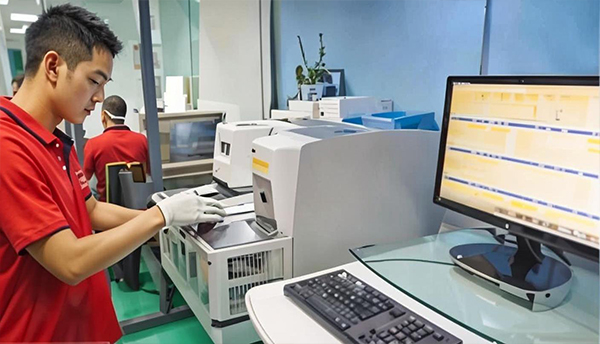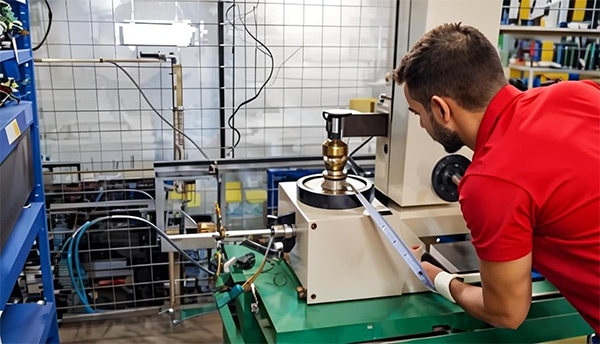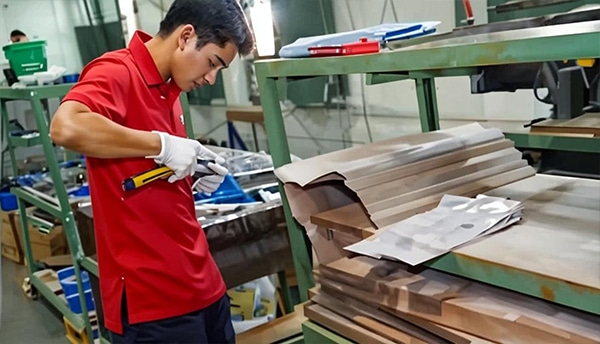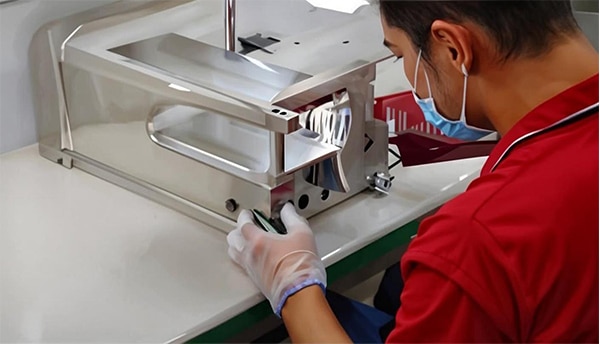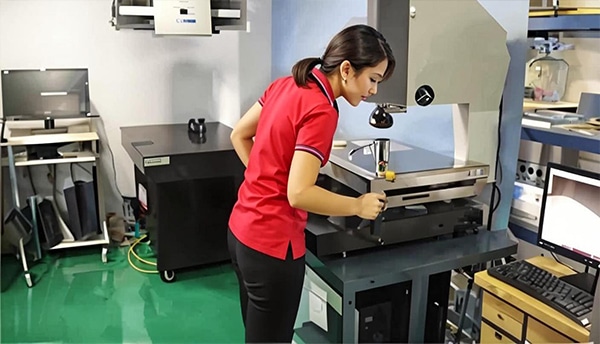Introduction to CNC Turning Machining
CNC (Computer Numerical Control) turning machining is a fundamental technique in the manufacturing realm, enabling the production of precision-engineered parts from various materials, including metals, plastics, and composites. This method stands out due to its ability to automate the machining process, ensuring consistency and accuracy in part production. CNC turning involves rotating a workpiece against a stationary cutting tool, which shapes the material according to predetermined specifications.
The operational process begins with a computer programming stage, where engineers develop a detailed design using CAD (Computer-Aided Design) software. This design is then translated into a set of commands understood by the CNC machine. The machine interprets these commands to control the movement of the workpiece and the cutting tools, resulting in the desired geometric shapes and dimensions. This automation minimizes human error and maximizes efficiency, which is crucial for industries requiring high precision.
In terms of tools, CNC turning machines utilize a variety of cutting instruments, including lathes and drills, which are equipped to handle different types of materials. The tool selection depends on the required finish and the material properties of the workpiece. Titanium, known for its high strength-to-weight ratio and corrosion resistance, is a prime candidate for CNC turning. The customized titanium parts produced through this technique are vital in numerous applications, from aerospace components to medical devices.
Ultimately, CNC turning machining is a transformative process that not only enhances production capabilities but also supports the creation of highly specialized components. The increased adoption of this technology reflects its importance in meeting modern manufacturing demands, ensuring that industries can produce intricate designs with the desired material integrity.
The Importance of Titanium in Manufacturing
Titanium is increasingly recognized as a highly valuable material in manufacturing due to its unique combination of properties. One of the principal features of titanium is its exceptional strength-to-weight ratio; this means that while it is durable and strong, it is also considerably lighter than other metals such as steel. The lightweight nature of titanium makes it particularly appealing for industries that require both resilience and efficiency, such as aerospace and automotive sectors.
In addition to its strength and lightweight characteristics, titanium boasts excellent corrosion resistance. This property allows titanium parts to withstand harsh environments, making them suitable for applications where exposure to extreme conditions is inevitable. As a result, titanium is often used in marine applications, chemical processing, and even architecture, where durability and longevity are crucial. Furthermore, the ability of titanium to resist oxidation and degradation over time leads to lower maintenance costs and extended lifespans for components made from this metal.
Another significant advantage of titanium is its biocompatibility, which renders it suitable for medical applications. Titanium is commonly employed in surgical implants, prosthetics, and other medical devices, primarily because of its ability to integrate well with human tissue without causing adverse reactions. This quality of titanium has made it an essential material in the healthcare industry, driving innovation in developing customized solutions tailored to individual patient needs.
The benefits of using titanium parts extend beyond its fundamental properties. When integrated into CNC turning machining services, titanium allows manufacturers to create highly customized parts tailored to specific requirements. This adaptability highlights titanium’s versatility, making it an ideal choice for various industries seeking efficient, reliable, and tailored components that ensure optimal performance.
Customized Services for Titanium Parts: The Process Explained
The customization of titanium parts through CNC turning machining services involves several crucial stages that ensure the final product meets the specific requirements of clients. The process begins with design consultations, where engineers and customers collaborate to define the specifications and functional requirements of the titanium components. This stage is critical as it sets the foundation for the subsequent phases. Engineers utilize advanced CAD software to develop initial designs, which are then reviewed and refined based on customer feedback.
Following the design phase, prototyping is undertaken. This step involves creating a preliminary version of the titanium part, typically using a CNC machine. The prototype allows for physical validation of the design, providing insights into performance and any necessary adjustments. By evaluating the prototype, manufacturers can identify potential issues early on, ultimately streamlining the production process. This iterative feedback loop is essential for achieving precision in the final product.
Once the prototype is approved, the production phase commences. Here, high-quality titanium is selected, and advanced CNC turning technologies are employed to manufacture the parts. The machining process is meticulously monitored to ensure dimensional accuracy and adherence to the agreed-upon specifications. Operators and technicians play a pivotal role in maintaining quality throughout this stage by adjusting parameters and performing routine inspections.
The final step in customizing titanium parts involves quality assurance checks. These inspections are designed to verify that the finished items meet all operational and design specifications. Employing various techniques, such as precision measuring instruments and non-destructive testing, manufacturers ensure consistency and reliability in their products. Each stage, from design consultations to quality assurance, is integral in delivering high-performance titanium components tailored to client specifications.
Benefits of Using CNC Turning Machining for Titanium Parts
CNC turning machining has revolutionized the manufacturing industry, particularly for high-performance materials such as titanium. One of the primary advantages of this method is its ability to offer exceptional precision. CNC machines operate through pre-programmed computer software, ensuring that every cut and movement is executed with meticulous accuracy. This precision is crucial for titanium parts, which often require tight tolerances to meet stringent specifications in various applications, from aerospace to medical devices.
Scalability is another key benefit of CNC turning machining. Once a design is perfected and programmed into the machine, it can produce one part or thousands with the same level of quality and precision. This ability to scale production seamlessly makes CNC turning ideal for both small batch runs and large-scale manufacturing operations. Consequently, businesses can meet varying demand levels without compromising on quality or increasing lead times.
Efficiency is significantly enhanced through the use of CNC turning machining. These machines can operate continuously—with minimal downtime—maximizing productivity. When manufacturing titanium components, this means quicker turnaround times without sacrificing the quality that titanium parts are known for. Moreover, the automated nature of CNC machining often leads to reduced labor costs, contributing to the overall cost-effectiveness of the process.
Another noteworthy advantage is the capability to produce complex geometries. CNC turning allows for intricate designs that would be challenging or impossible to achieve with traditional machining methods. This flexibility not only opens up new design possibilities but also enables manufacturers to push the boundaries of innovation.
Lastly, utilizing CNC technology enhances consistency and reduces material waste. The precision of CNC operations ensures uniformity across all produced parts, leading to fewer errors and waste material. This reduction in scrap not only contributes to cost savings but also supports environmentally sustainable practices in manufacturing. Overall, the benefits of CNC turning machining for titanium parts are substantial, paving the way for more advanced and effective production processes.
Future Trends in CNC Machining and Titanium Parts Customization
The landscape of CNC machining is evolving rapidly, influenced by technological advancements and changing industry demands. As manufacturers strive for higher efficiency and precision, several trends are emerging that are poised to redefine the customization of titanium parts. One of the most significant trends is the integration of automation in CNC machining processes. Automation not only enhances productivity but also minimizes human error, leading to improved quality in the production of titanium components. Robotic systems, coupled with CNC machines, can increase output while maintaining precise tolerances necessary for intricate titanium designs.
Moreover, the incorporation of the Internet of Things (IoT) is set to revolutionize the manufacturing processes. By connecting machines and tools via the internet, manufacturers can monitor production in real-time, leading to proactive decision-making and predictive maintenance. This connectivity allows for the efficient tracking of equipment performance and can significantly reduce downtime. Consequently, IoT integration enhances the customization capabilities of titanium parts, facilitating real-time adjustments to machining processes based on client requirements or production conditions.
Advancements in software also play a crucial role in shaping the future of CNC machining. Enhanced design software enables engineers to create more complex geometries for titanium parts, allowing for greater customization possibilities. These improvements in design collaboration tools lead to streamlined workflows and faster turnaround times for prototype development. Overall, as CNC machining technology continues to advance, the ability to customize titanium components will become more accessible, allowing companies to meet the increasingly specific demands of their clients.
In summary, the future of CNC machining and titanium parts customization is bright, with automation, IoT integration, and enhanced design software driving efficiencies and innovations. These trends will undoubtedly shape the manufacturing landscape, enabling a more flexible and dynamic approach to producing customized titanium solutions.




